Covid in Wales: Ministers 'reluctant' to wind down testing
- Published
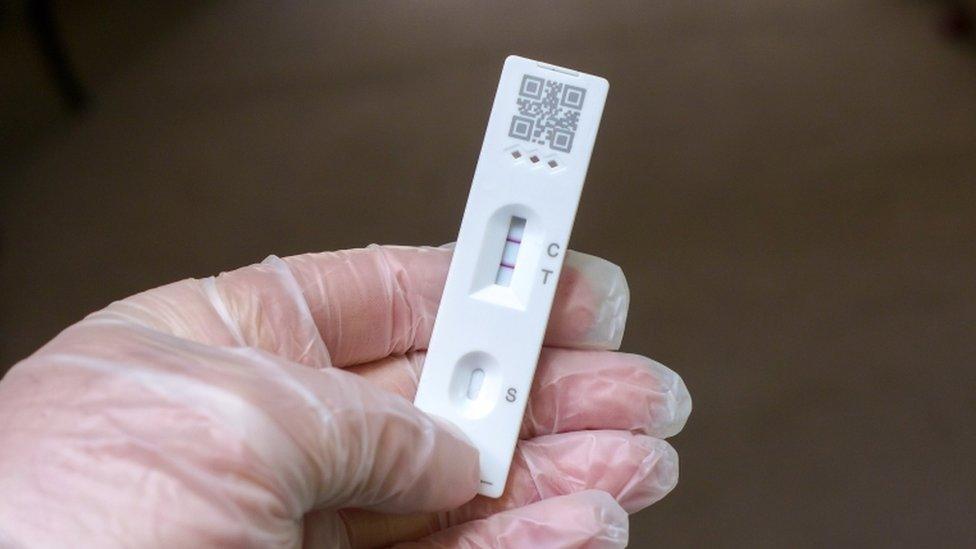
Eluned Morgan: "We are reluctant to be in a situation where we can't monitor what is coming into our societies"
Ministers are "reluctant" to wind down the Covid-19 testing regime over the next few months, according to Wales' health minister.
Eluned Morgan said it would be "very difficult" to fund current mass testing levels with the UK government ending free testing in England from April.
She said one concern was whether the system would be "ready to spring back" amid a new wave of cases.
Welsh Secretary Simon Hart MP has said testing was now "more targeted", external.
"If Welsh government want to continue funding blanket testing going forward then that is a decision for them, they already have the adequate resource and funding to do so," he said.
But speaking on the BBC Politics Wales programme, Ms Morgan, a Member of the Senedd (MS), said the Welsh government could not afford to continue funding free lateral flow tests (LFTs) "because, frankly, they are cutting the funding for us from England".
On Friday, it was announced that Wales is to scrap its remaining Covid laws at the end of March and will wind down the testing system over several months.
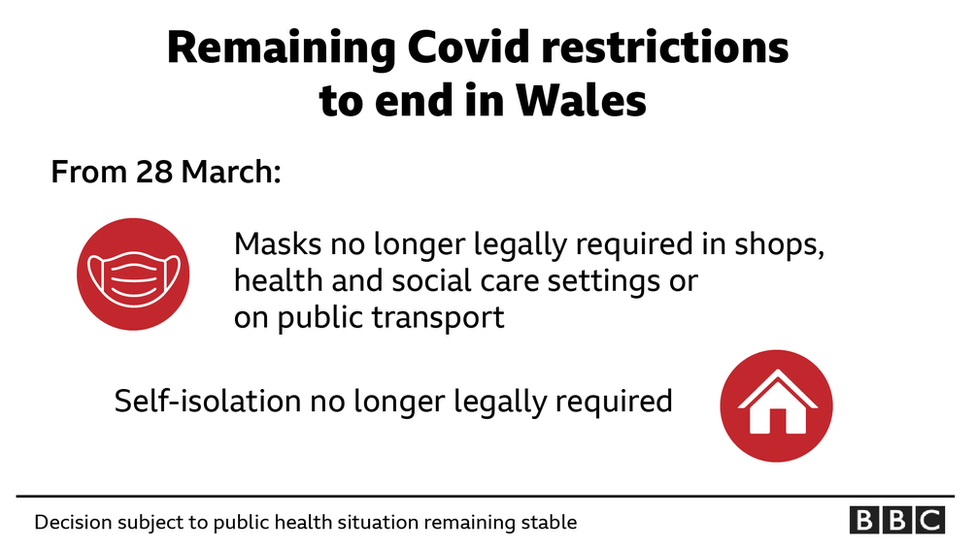
In Wales from 28 March:
The use of PCR tests - processed in a lab - by the general public will stop
LFTs will be available online for free - but only for testing people who have symptoms
From the end of June:
LFTs cease to be available for testing people with symptoms
PCR tests will be kept for certain groups, such as health and social care staff with symptoms and care home residents, and hospital patients
Protection or an infringement of freedoms? People in Wales have been wearing masks for almost two years
Wales chief medical officer Dr Sir Frank Atherton has advised the Welsh NHS keeps testing capacity, in part, so it can respond to new variants.
He said UK government scientific advice has said that future variants "are highly likely to appear" and may lead to more "harm" than seen with Omicron.
Asked on Politics Wales whether Wales would be able to properly detect the emergence of a new variant after the end of mass testing, Ms Morgan said: "One of the big concerns that we have is that we do need to be ready to spring back in terms of protection measures if we see another variant hitting us in future.
"All the scientists are suggesting that that is highly likely to happen.
"We are reluctant to be in a situation where we can't monitor what is coming into our societies.
"There are some monitoring levels that will remain - we've got the ONS survey, we've got the water monitoring, external and, of course, we'll keep that testing regime in place for those people working in health and care facilities," she added.
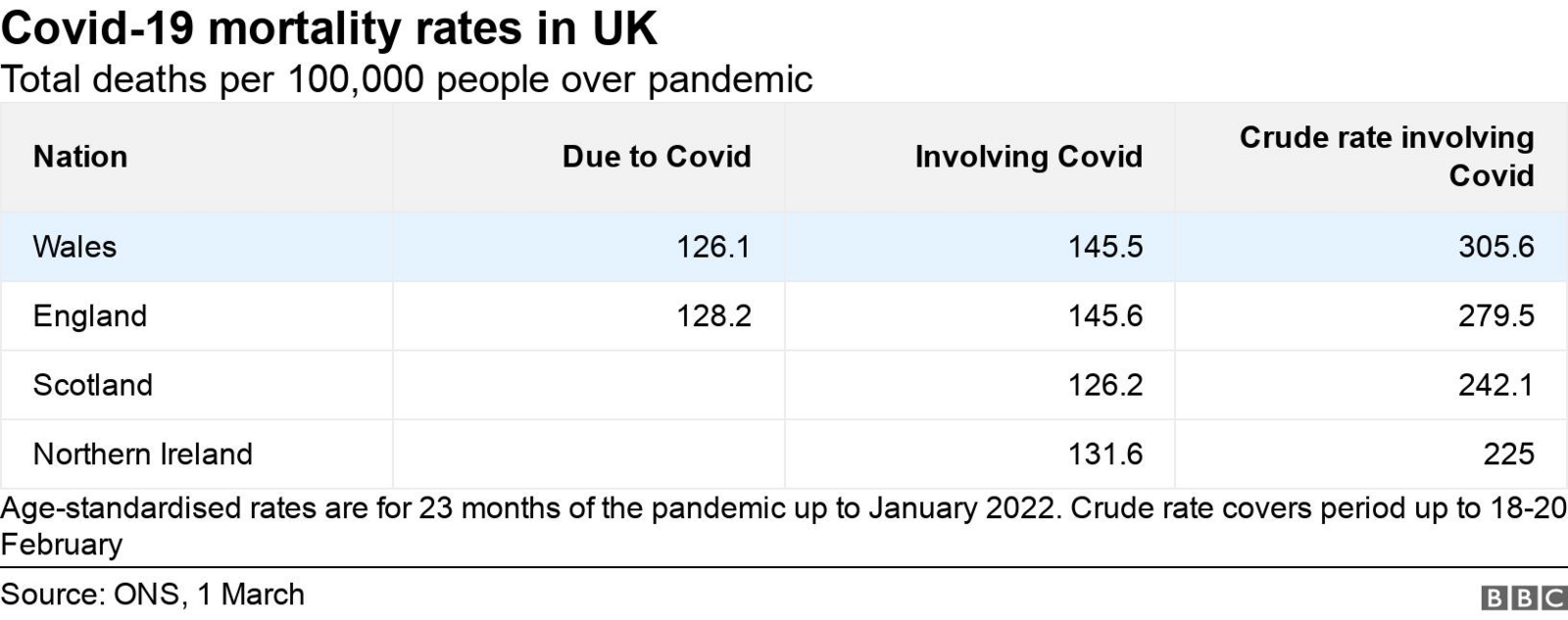

Across the course of the pandemic, the age-standardised mortality rate for deaths involving Covid is almost the same between England and Wales - 145.5 and 145.6 deaths per 100,000, with Scotland (126.2) and Northern Ireland (131.6), both lower in the 23 months to the end of January.
The age-standardised mortality rate due to Covid - with Covid the underlying cause of death - is slightly higher in England than in Wales.
Asked whether the Welsh government's rhetoric about pursuing a cautious approach to the pandemic matched the reality in terms of deaths, Ms Morgan said: "Of course, it's not just about age.
"The fact is that we do have a sicker population here in Wales as well due to our industrial heritage and other issues... and poverty levels, of course.
"All of that has an influence on the health of our population generally.
"So that would explain, to an extent, why those figures are no different.
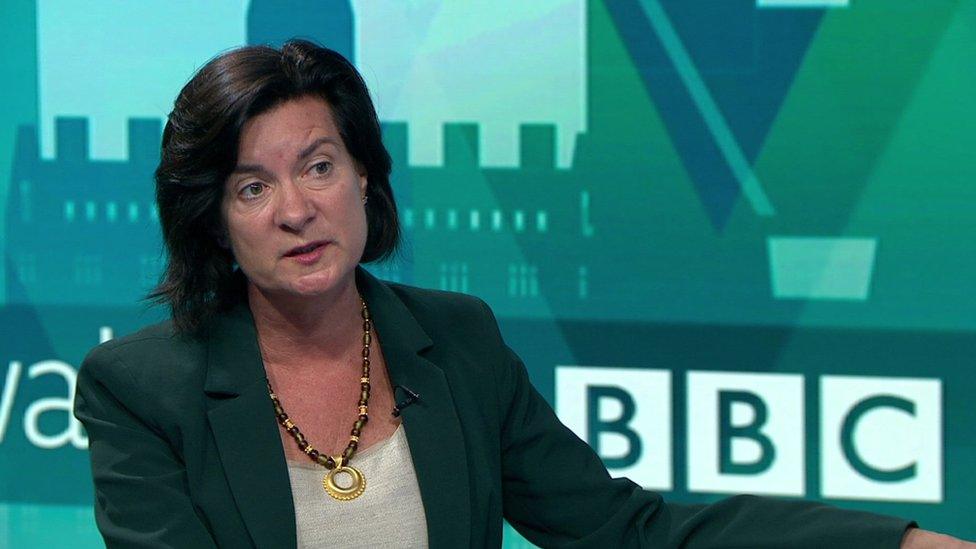
Eluned Morgan: "We do have a sicker population here in Wales"
"I think what would worry me is if we hadn't been cautious; imagine what those figures would have been like under those circumstances."
What about a Welsh inquiry into Covid?
The Welsh government has continued to reject the idea of a Welsh-specific Covid inquiry despite criticism from campaigners and opposition parties.
Tom Giffard, Welsh Conservative MS, has accused Welsh ministers of being "hellbent on dodging scrutiny".
"Instead of admitting mistakes were made and allowing full scrutiny to take place, Labour ministers are still too scared to hold one and are instead hiding behind a UK-wide inquiry," he said.
Plaid Cymru has been calling for the campaign group Covid-19 Bereaved Families for Justice Cymru to be given 'core participant status' in the UK Covid-19 public inquiry, external to enable it to assist and contribute at every stage of its work.
Health spokesman Rhun ap Iorwerth MS has written to he UK Covid-19 Inquiry asking to "ensure that the Welsh voice is heard distinctly".
Asked if she supported the call, Ms Morgan said: "I think it's important that people who have lost loved ones, and it won't just be people who are part of that group, there will be people all over Wales who are perhaps not necessarily part of that group who will also want their voices heard, so it is important, I think, that we provide a mechanism for those people all over Wales."

THE STORY OF MIWSIG: Eleri Price and Huw Stephens time travel with Welsh language pop
MARGINS TO MAINSTREAM: Michael Sheen introduces new writers revealing their truths

- Published4 March 2022
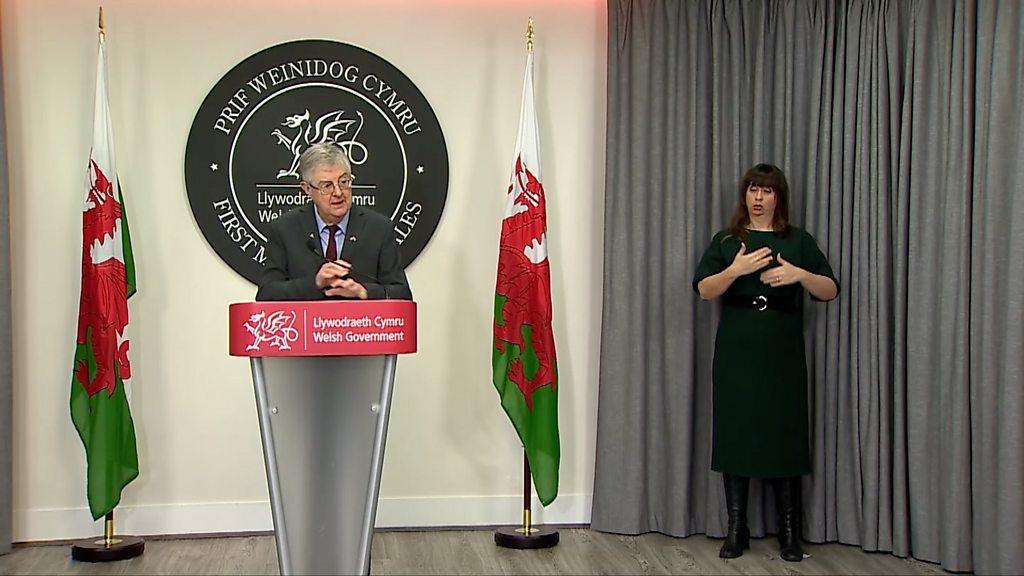
- Published4 March 2022
